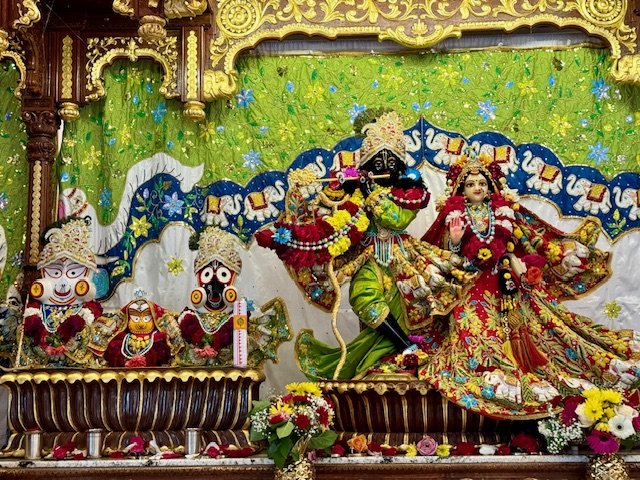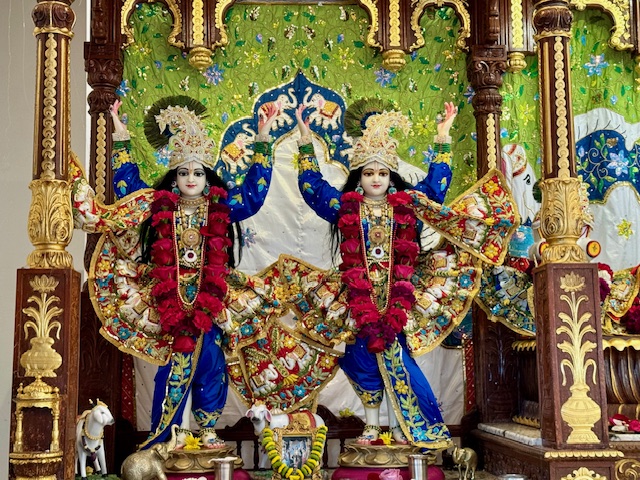Some of the 15,000 guests who attended the Janmashtami celebrations in the new ISKCON of DC Temple in Potomac, Maryland. From Mayapur to Melbourne, Brazil to Bangkok, New York to New Delhi, hundreds of thousands of Krishna devotees gathered at ISKCON temples and centers worldwide to celebrate Sri Krishna Janmashtami. ISKCON devotees first celebrated the […]
The post Joyful Janmashtami Festivals Held Around the World appeared first on ISKCON News.




 By Vijaya Dasa
By Vijaya Dasa